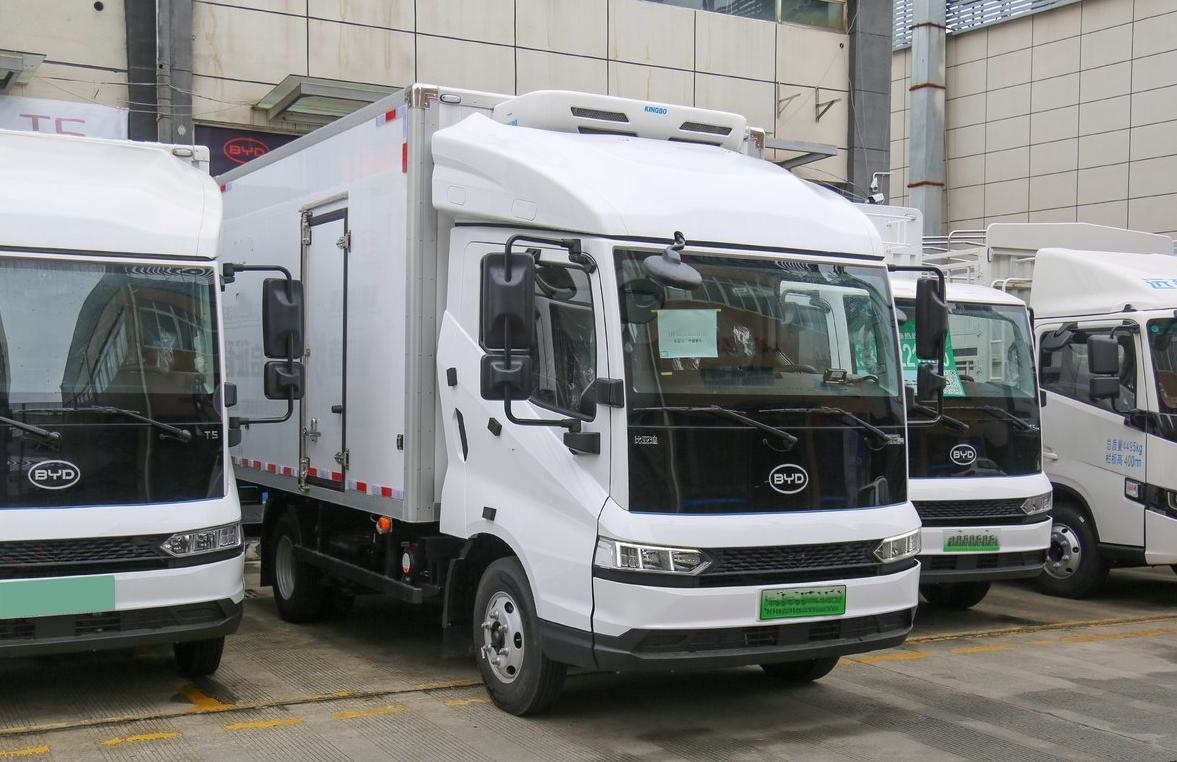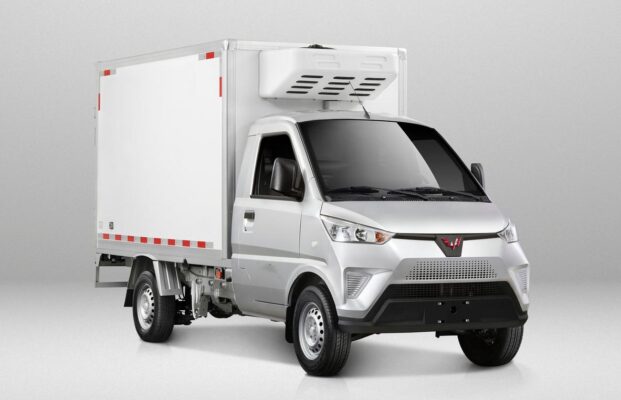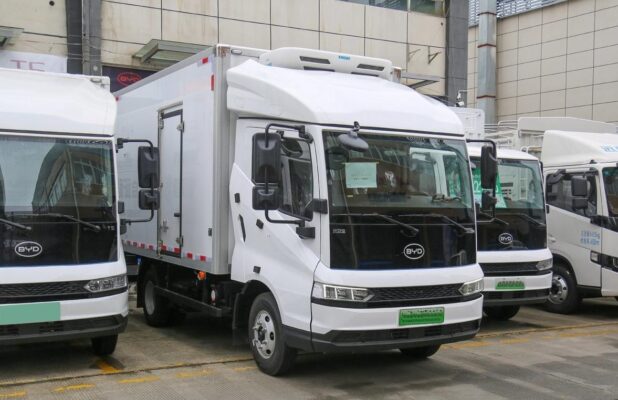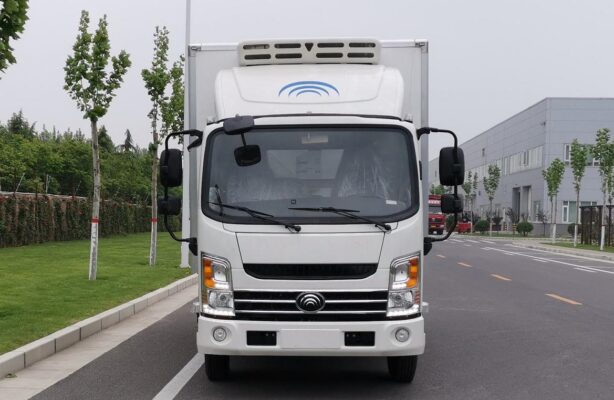Newyddion tryc trydan
Why Electric Pickup Trucks Are Power-Efficient
Electric pickup trucks are becoming an increasingly popular choice for consumers who value eco-friendly and energy-efficient transportation. Known for zero emissions, reduced fuel costs, and a lower environmental impact, electric pickup trucks offer several advantages over traditional internal combustion engine (Heision) vehicles. To fully understand why electric pickup trucks are considered power-efficient, we need to explore several key factors that contribute to their energy-saving capabilities.
1. High-Efficiency Power Systems
One of the main reasons electric pickup trucks are more power-efficient than traditional vehicles lies in their advanced power systems:
- Efficient Energy Conversion: Unlike ICE vehicles, which convert only a portion of fuel energy into mechanical power (due to energy lost as heat), electric pickup trucks use electric motors, which have a much higher efficiency rate. Electric motors convert over 85% of the electrical energy into motion, while ICEs operate at around 20-30% effeithlonrwydd. This direct conversion from electrical to mechanical energy greatly reduces energy waste, making electric trucks more energy-efficient and cost-effective in the long run.
- Reduced Heat and Exhaust Emissions: Since electric motors produce minimal heat compared to gasoline engines, there is significantly less energy lost due to thermal waste. Hefyd, electric trucks do not release exhaust gases, eliminating the need for energy-intensive emissions management systems. This allows electric vehicles (Evs) to use more of the energy they generate for movement, reducing unnecessary energy consumption.
2. Advanced Energy Recovery Systems
Electric pickup trucks are equipped with energy recovery systems, which play a significant role in energy efficiency:
- Regenerative Braking: Unlike traditional vehicles, which lose most braking energy as heat, electric trucks capture this energy and convert it into electricity that can be stored in the battery. During deceleration or braking, the electric motor operates in reverse, converting kinetic energy back into electrical energy, which is then stored for future use. This process enhances the vehicle’s efficiency by recapturing and reusing energy that would otherwise be lost.
- Improved Battery Longevity: Regenerative braking not only saves energy but also reduces the frequency of battery recharges, thereby extending battery lifespan. The less frequently a battery is charged to full capacity, the longer it lasts, making the entire system more sustainable and power-efficient.
3. Lightweight Vehicle Design
Electric pickup trucks are designed with lightweight and high-strength materials, which contributes to their efficiency:
- Use of Advanced Materials: To compensate for the weight of the battery, many electric pickups use lightweight materials like aluminum, carbon fiber, and advanced composites in their construction. This reduces the overall weight of the vehicle without compromising durability, helping to lower energy demands during acceleration and maintaining cruising speeds.
- Enhanced Range: The reduced weight allows for improved range, meaning electric trucks can travel further on the same amount of energy. This is particularly beneficial for pickup trucks, which often carry heavy loads. By minimizing unnecessary vehicle weight, electric pickups achieve better power efficiency and lower overall energy consumption.
4. Intelligent Energy Management Systems
Electric pickup trucks are also equipped with intelligent energy management systems that optimize energy consumption based on driving conditions and battery levels:
- Dynamic Energy Allocation: These systems can adjust power usage according to real-time conditions, such as road type, goryrru, load weight, a statws batri, helping the vehicle make smarter energy decisions. Er enghraifft, during low-energy-demand situations, the system might reduce power output to conserve battery life.
- Adaptive Climate Control: In EVs, climate control systems can be adjusted to draw minimal energy from the battery, unlike traditional heating and cooling systems that require substantial engine power. Intelligent energy management systems help to limit the energy consumed by these auxiliary systems, allowing more energy to be directed toward vehicle propulsion.
- Battery Health Management: Intelligent systems monitor battery status and regulate charging and discharging processes, which prevents battery degradation and ensures consistent performance over time. By keeping the battery within optimal operating conditions, these systems contribute to both extended range and battery longevity.
5. Clear Energy-Saving Benefits Over Traditional Vehicles
Compared to traditional vehicles, electric pickup trucks demonstrate clear advantages in terms of energy efficiency and reduced operating costs:
- Higher Energy Efficiency: Electric trucks convert more than 85% of electrical energy into motion, as opposed to the approximate 20-30% energy conversion rate of traditional engines. This significant difference in efficiency allows electric pickups to offer a greater driving range for the same energy input, reducing the cost per kilometer.
- Lower Energy Consumption per 100 Kilometers: Studies have shown that electric pickup trucks consume around half the energy required by ICE vehicles over 100 kilometers, highlighting the efficiency of electric power systems, energy recovery, and lightweight design. This translates to tangible cost savings and a lower environmental impact over the vehicle’s lifespan.
- No Energy Loss During Idle: Traditional ICE vehicles consume fuel even while idling, leading to waste and pollution. Electric pickups, Fodd bynnag, draw little to no power when stationary, which enhances energy efficiency and reduces unnecessary energy expenditure.
6. Environmental Impact of Energy-Saving in Electric Pickup Trucks
The energy efficiency of electric pickup trucks has several positive environmental implications:
- Reduced Exhaust Emissions: ICE vehicles emit harmful pollutants, such as nitrogen oxides and carbon dioxide, which contribute to air pollution and climate change. Electric trucks eliminate tailpipe emissions entirely, significantly reducing air pollution and contributing to cleaner air in urban and industrial areas.
- Lower Greenhouse Gas Emissions: The increased energy efficiency and lower fuel requirements of electric vehicles result in a smaller carbon footprint. Moreover, as renewable energy sources, like solar and wind power, become more integrated into the charging infrastructure, the emissions associated with charging EVs will decrease, further mitigating climate change.
- Potential for Renewable Charging: Electric trucks can be powered by renewable energy sources, reducing dependency on non-renewable fossil fuels. This reliance on clean energy contributes to a reduction in greenhouse gas emissions and makes EVs a more sustainable option for transportation.
7. Energy Conservation Benefits of Electric Pickup Trucks
The power efficiency of electric pickup trucks directly translates to energy conservation:
- Greater Mileage per Energy Unit: Electric pickup trucks offer higher mileage on the same amount of energy input as traditional vehicles. This is especially beneficial for long-haul and commercial operations where energy costs are a major concern, as the trucks can cover longer distances with less energy expenditure.
- Reuse of Energy Through Recovery Systems: Energy recovery systems prevent wastage and encourage the reuse of energy generated during braking and deceleration. By recycling this energy back into the battery, electric pickups are able to improve efficiency and reduce the amount of energy required from charging.
- Renewable Energy Compatibility: By supporting renewable energy charging, electric pickup trucks help decrease dependency on fossil fuels, enabling more sustainable and efficient energy use. Charging with renewable energy sources like solar and wind minimizes strain on finite natural resources and promotes environmental conservation.
8. Nghasgliad
The power efficiency of electric pickup trucks can be attributed to their advanced electric power systems, energy recovery features, lightweight construction, and intelligent energy management systems. Together, these factors allow electric trucks to utilize energy more effectively, resulting in lower consumption and costs. Electric pickups not only offer a cleaner, more sustainable alternative to traditional vehicles but also play a significant role in reducing emissions, promoting energy conservation, and enhancing environmental quality.
As consumers continue to prioritize eco-friendly and cost-efficient transportation options, the power efficiency and energy-saving capabilities of electric pickup trucks make them an increasingly attractive choice. By harnessing efficient energy use, energy recovery, and renewable power compatibility, electric pickup trucks represent a critical step toward sustainable, environmentally conscious transportation in the future.




